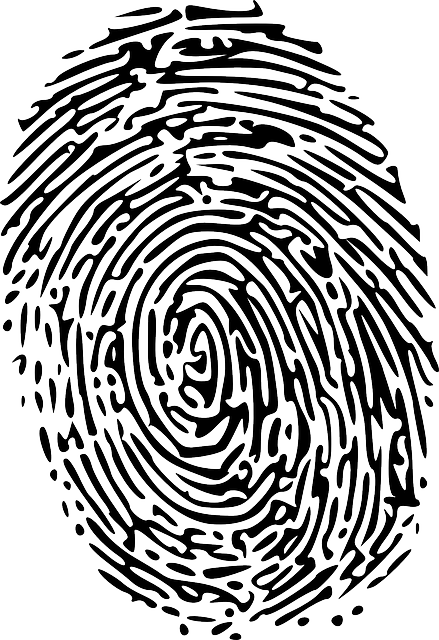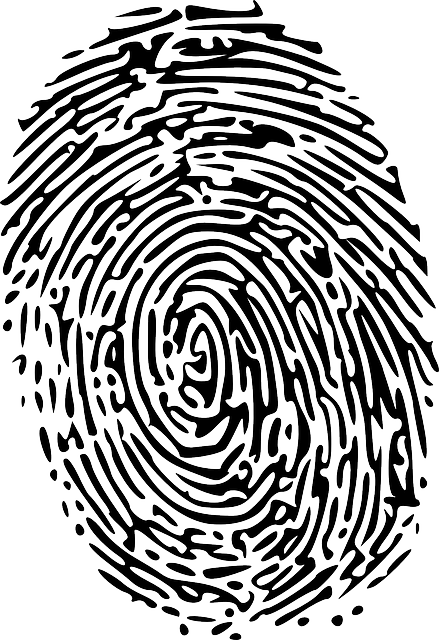When facing a criminal offense, it is crucial to have the guidance and support of a skilled criminal defense attorney. In this article, you will learn how to create compelling content for a criminal defense attorney’s website blog. By understanding the needs and concerns of individuals facing criminal charges in Utah, you can create informative posts that explain complex legal concepts in a clear and accessible manner. Showcasing your expertise and experience through engaging case studies and real-life scenarios will instill confidence in potential clients and set your firm apart. By addressing common legal concerns directly and incorporating personal stories, you can humanize your practice and create emotional connections. Additionally, optimizing your content for search engines through keyword research and incorporating keywords naturally will help attract potential clients to your blog. Each blog post should include a clear call-to-action, prompting individuals to take the next step and seek assistance promptly.

This image is property of pixabay.com.
Understanding Criminal Offenses
When it comes to understanding criminal offenses, there are several key aspects to consider. In this article, we will explore the different types of criminal offenses, the elements that make up a criminal offense, and the criminal justice system. Additionally, we will discuss the consequences of criminal offenses, common offenses, building a defense strategy, working with a criminal defense attorney, navigating the criminal justice process, standing trial for a criminal offense, alternative sentencing options, post-conviction options, the effect of criminal offenses on employment and housing, protecting your rights during police interactions, understanding criminal offenses in your state, and resources for individuals facing criminal charges. Let’s dive in and explore each of these topics in detail.
Types of Criminal Offenses
Criminal offenses can vary widely, ranging from minor misdemeanors to serious felonies. Some common types of criminal offenses include assault and battery, burglary and theft, drug crimes, and white-collar crimes. Understanding the different types of offenses is crucial, as it helps individuals facing criminal charges understand the severity of their situation and the potential consequences they may face.
Elements of a Criminal Offense
Every criminal offense consists of certain elements that must be proven beyond a reasonable doubt in order to secure a conviction. These elements typically include an act (actus reus) and a mental state (mens rea). Actus reus refers to the physical act or conduct that constitutes the offense, while mens rea refers to the mental state or intent behind the act. Understanding these elements is essential for individuals seeking to build a strong defense strategy and protect their rights.
The Criminal Justice System
The criminal justice system is a complex network of laws, procedures, and institutions designed to maintain social order and punish individuals who violate the law. It consists of several key components, including law enforcement agencies, prosecutors, defense attorneys, judges, and correctional facilities. Navigating the criminal justice system can be challenging, especially for individuals who are unfamiliar with its intricacies. Understanding the roles and responsibilities of each component is crucial for individuals facing criminal charges.
Consequences of Criminal Offenses
When an individual is convicted of a criminal offense, they may face a range of consequences that can have a long-lasting impact on their lives. These consequences can include fines and penalties, imprisonment and probation, and the creation of a criminal record that may affect future employment and housing opportunities. It is important for individuals facing criminal charges to understand the potential consequences they may face in order to make informed decisions about their defense strategy.
Fines and Penalties
Fines and penalties are a common consequence of criminal offenses, typically imposed as a form of punishment or deterrence. The severity of fines and penalties can vary depending on the type and severity of the offense. In some cases, fines may be relatively minor, while in others, they can be substantial. It is important for individuals facing criminal charges to understand the potential financial implications of their case and to work with a criminal defense attorney to protect their rights.
Imprisonment and Probation
Imprisonment is another common consequence of criminal offenses, particularly for more serious offenses. Individuals convicted of a crime may be sentenced to serve time in jail or prison, during which they are separated from their families and communities. Additionally, individuals may be placed on probation, which involves regular check-ins with a probation officer and compliance with certain conditions. Understanding the potential for imprisonment and probation is vital for individuals facing criminal charges.
Criminal Records and Background Checks
Being convicted of a criminal offense can result in the creation of a criminal record, which can have far-reaching consequences. A criminal record can make it difficult to obtain employment, secure housing, and even obtain professional licenses or certifications. Understanding the potential impact of a criminal record is important for individuals facing criminal charges, as it can help them make informed decisions about their defense strategy and potential post-conviction options.
Common Criminal Offenses
There are several common criminal offenses that individuals may be charged with, depending on the jurisdiction and the specific circumstances of their case. Some of these offenses include assault and battery, burglary and theft, drug crimes, and white-collar crimes. Understanding the elements of these offenses and the potential consequences they carry is crucial for individuals facing criminal charges, as it can help them build a strong defense strategy and protect their rights.
Assault and Battery
Assault and battery are serious criminal offenses that involve the intentional infliction of physical harm or the threat of physical harm upon another individual. These offenses can range in severity, from simple assault to aggravated assault and battery. Understanding the elements of assault and battery and the potential consequences they carry is important for individuals facing these charges.
Burglary and Theft
Burglary and theft offenses involve the unlawful entry into a structure or the unlawful taking of another person’s property. These offenses can range in severity, from misdemeanor petty theft to felony grand theft and burglary. Understanding the elements of burglary and theft offenses and the potential consequences they carry is crucial for individuals facing criminal charges.
Drug Crimes
Drug crimes encompass a wide range of offenses, including possession, distribution, manufacturing, and trafficking of illegal substances. These offenses can vary in severity, with penalties ranging from fines and probation to imprisonment. Understanding the elements of drug crimes and the potential consequences they carry is essential for individuals facing criminal charges.
White Collar Crimes
White-collar crimes are non-violent offenses typically committed by individuals in business or professional settings. These offenses can include fraud, embezzlement, insider trading, and other forms of financial misconduct. Understanding the elements of white-collar crimes and the potential consequences they carry is important for individuals facing criminal charges.
Building a Defense Strategy
When faced with criminal charges, building a strong defense strategy is crucial to protecting your rights and obtaining a favorable outcome. There are several key steps involved in building a defense strategy, including gathering evidence, examining witnesses, and exploring legal defenses.
Gathering Evidence
Gathering evidence is a critical component of building a defense strategy. This includes collecting any available documents, photographs, videos, or other forms of evidence that may be relevant to your case. Working with a criminal defense attorney can help ensure that all relevant evidence is properly collected, preserved, and presented.
Examining Witnesses
Examining witnesses is another important aspect of building a defense strategy. This involves interviewing potential witnesses, both for the defense and prosecution, to gather information that may support your case. Witness testimony can play a crucial role in challenging the prosecution’s case or establishing an alibi.
Legal Defenses
Exploring legal defenses is a key element of building a defense strategy. Depending on the circumstances of your case, there may be various legal defenses available to challenge the prosecution’s case or reduce the charges against you. Common defenses include self-defense, mistaken identity, lack of intent, and alibi. Working with a criminal defense attorney who is experienced in your particular area of law is essential to identifying and utilizing the most effective legal defenses for your case.

This image is property of pixabay.com.
Working with a Criminal Defense Attorney
Working with a criminal defense attorney is essential for individuals facing criminal charges. An experienced attorney can guide you through the legal process, protect your rights, and help you build a strong defense strategy. When selecting a criminal defense attorney, there are several key considerations to keep in mind.
Choosing the Right Attorney
Choosing the right attorney is crucial to the success of your defense strategy. Look for an attorney who specializes in criminal defense and has experience handling cases similar to yours. It is also important to consider factors such as reputation, track record, and communication style when selecting an attorney. Schedule consultations with multiple attorneys to determine who is the best fit for your case.
Initial Consultation
During the initial consultation, you will have the opportunity to discuss your case with the attorney and determine if they are the right fit for you. Be prepared to provide all relevant information about your case and ask any questions you may have. The attorney will assess the strength of your case, explain the potential legal options available to you, and outline a strategy moving forward.
Fee Structure
Understanding the attorney’s fee structure is important before making a final decision. Some attorneys charge an hourly rate, while others work on a flat fee or contingency basis. It is important to clarify the fee structure and any additional expenses that may arise during the course of your case.
Navigating the Criminal Justice Process
Navigating the criminal justice process can be overwhelming and confusing, especially for individuals who are unfamiliar with its intricacies. Understanding the various stages of the process can help individuals facing criminal charges know what to expect and better advocate for their rights.
Arrest and Bail
The criminal justice process typically begins with an arrest when law enforcement officers believe that a crime has been committed. Following an arrest, an individual may be taken into custody and booked at a local police station or county jail. In many cases, individuals who have been arrested have the right to post bail, which allows them to be released from custody while awaiting trial.
Pre-Trial Proceedings
Pre-trial proceedings involve various stages during which the prosecution and defense prepare for trial. This may include filing and responding to motions, conducting discovery, negotiating plea agreements, and discussing the case with the judge. It is during this stage that defense attorneys may challenge the admissibility of evidence, seek to suppress evidence obtained unlawfully, and explore potential legal defenses.
Trial and Sentencing
If a case proceeds to trial, both the prosecution and defense will present their arguments and evidence to a judge or jury. It is the responsibility of the prosecution to prove the defendant’s guilt beyond a reasonable doubt. If the defendant is found guilty, a separate sentencing hearing may be held to determine the appropriate punishment. The judge will consider various factors, including the severity of the offense, the defendant’s criminal history, and any mitigating circumstances, in determining an appropriate sentence.

This image is property of pixabay.com.
Standing Trial for a Criminal Offense
When standing trial for a criminal offense, it is crucial to understand your rights and the procedures involved. This includes understanding your rights as an accused individual, the process of jury selection, and presenting a defense.
Rights of the Accused
The rights of the accused are protected under the United States Constitution to ensure a fair trial. These rights include the right to remain silent, the right to legal representation, the right to confront witnesses, the right to a speedy and public trial, and the presumption of innocence until proven guilty. Understanding and asserting your rights is essential to protect your interests throughout the trial process.
Jury Selection
Jury selection is a crucial stage of the trial process, as it determines who will hear the case and ultimately render a verdict. During jury selection, the prosecution and defense have the opportunity to question potential jurors to determine if they are impartial and capable of rendering a fair verdict. It is important to ensure that the jury selection process is fair and impartial to protect your right to a fair trial.
Presenting a Defense
Presenting a defense involves presenting evidence, calling witnesses, and challenging the prosecution’s case. Your defense strategy may include presenting an alibi, challenging the credibility of witnesses, raising reasonable doubt, and introducing evidence that supports your version of events. Working closely with your defense attorney is crucial to developing a strong defense strategy and effectively presenting your case to the jury.
Alternative Sentencing Options
In some cases, individuals facing criminal charges may have access to alternative sentencing options. These options provide an alternative to traditional imprisonment and can include diversion programs, community service, and restitution.
Diversion Programs
Diversion programs are an alternative to traditional prosecution and imprisonment. These programs typically involve a series of requirements and conditions that individuals must complete to avoid conviction and criminal penalties. Diversion programs can include drug treatment programs, counseling, educational programs, and community service. Successfully completing a diversion program can result in the dismissal of charges or a reduction in sentencing.
Community Service
Community service is another alternative sentencing option that allows individuals to give back to their community while serving their sentence. Community service typically involves performing unpaid work for a designated number of hours at a nonprofit or government agency. The specific requirements and conditions of community service will vary depending on the jurisdiction and the offense committed.
Restitution
Restitution is a form of alternative sentencing that requires individuals to pay compensation to their victims for any harm or loss caused by their offense. This can include reimbursing victims for medical expenses, property damage, or other financial losses. Restitution is typically ordered as part of a sentence and must be paid within a specified period of time.

This image is property of pixabay.com.
Post-Conviction Options
Even after a conviction has been obtained, there are still post-conviction options available to individuals facing criminal charges. These options include appeals, habeas corpus petitions, expungement, and record sealing.
Appeals and Habeas Corpus
An appeal is a legal process through which a higher court reviews the proceedings and outcome of a trial to determine if any legal errors occurred. If errors are found, the conviction or sentence may be overturned, and a new trial may be ordered. Habeas corpus petitions, on the other hand, are typically used to challenge the legality of a person’s confinement and can be filed after all appeals have been exhausted.
Expungement and Record Sealing
Expungement and record sealing are processes through which individuals can request to have their criminal records removed from public view. Expungement is typically available to individuals who have been acquitted of a crime or have completed a diversion program. Record sealing, on the other hand, allows individuals to have their records sealed from public access, making it more difficult for potential employers or landlords to access their criminal history.
Effect of Criminal Offenses on Employment and Housing
Criminal offenses can have a significant impact on an individual’s employment and housing prospects, and it is important to understand the potential consequences. This includes understanding how criminal records are used in background checks, the potential for employment discrimination, and any housing restrictions that may apply.
Background Checks
Many employers and housing providers conduct background checks to evaluate the criminal history of prospective employees or tenants. A criminal record can make it more difficult to obtain employment or secure housing, as many employers and landlords may be hesitant to hire or rent to individuals with a criminal history. Understanding how criminal records are used in background checks can help individuals facing criminal charges make informed decisions about their defense strategy and potential post-conviction options.
Employment Discrimination
Employment discrimination based on criminal history is prohibited by law in many jurisdictions. However, individuals with a criminal record may still face challenges in obtaining employment. It is important to understand the laws and regulations that govern employment discrimination in your jurisdiction and to work with a criminal defense attorney who can advocate for your rights.
Housing Restrictions
Similarly, landlords may also impose housing restrictions based on an individual’s criminal history. These restrictions can vary depending on the jurisdiction and the specific circumstances of the case. Understanding the potential housing restrictions that may apply can help individuals facing criminal charges make informed decisions about their defense strategy and potential post-conviction options.

This image is property of pixabay.com.
Protecting Your Rights During Police Interactions
Protecting your rights during interactions with law enforcement is crucial to ensuring a fair and just outcome. Understanding search and seizure laws, Miranda rights, and recording police encounters can help individuals facing criminal charges assert their rights and protect themselves.
Search and Seizure Laws
Search and seizure laws protect individuals from unreasonable searches and seizures by law enforcement. These laws require law enforcement officers to have a valid search warrant or probable cause to believe that a crime has been committed before conducting a search. Understanding search and seizure laws can help individuals facing criminal charges determine if their rights have been violated and take appropriate action.
Miranda Rights
Miranda rights refer to the rights that individuals must be informed of when they are taken into custody or subjected to custodial interrogation. These rights include the right to remain silent, the right to an attorney, and the warning that anything they say can and will be used against them in a court of law. It is important for individuals facing criminal charges to understand their Miranda rights and to assert them if necessary.
Recording Police Encounters
In many jurisdictions, individuals have the right to record police encounters as long as they do not interfere with the officers’ ability to perform their duties. Recording police encounters can help individuals facing criminal charges protect their rights, document any potential misconduct, and provide valuable evidence for their defense. However, it is important to be aware of the laws and regulations governing recording in your jurisdiction, as these can vary.
Understanding Criminal Offenses in Your State
Understanding criminal offenses in your particular state is crucial, as each jurisdiction may have its own specific laws, statutes of limitations, and court procedures. It is important to familiarize yourself with the laws that govern your case and to work with a criminal defense attorney who is experienced in your state’s legal system.
State-Specific Laws
Criminal laws can vary significantly from state to state. It is important to understand the specific laws that apply in your jurisdiction, as they will dictate the elements of the offense, potential penalties, and available defenses. Working with a criminal defense attorney who is knowledgeable about the laws in your state is essential for building a strong defense strategy.
Statutes of Limitations
Statutes of limitations set forth the time limits during which a criminal offense can be prosecuted. These time limits can vary depending on the severity of the offense and the jurisdiction. Understanding the statutes of limitations that apply to your case is important, as they can impact your defense strategy and potential post-conviction options.
Court Procedures
Court procedures can also vary from state to state. It is important to understand the specific court procedures that apply in your jurisdiction, such as pre-trial conferences, plea negotiations, and trial procedures. Working with a criminal defense attorney who is familiar with the court procedures in your state is essential to ensure that your rights are protected throughout the legal process.
Resources for Individuals Facing Criminal Charges
Facing criminal charges can be a daunting and isolating experience. Fortunately, there are resources available to provide assistance, support, and rehabilitation for individuals going through the criminal justice system.
Legal Aid Organizations
Legal aid organizations provide free or low-cost legal services to individuals who cannot afford an attorney. These organizations often specialize in criminal defense and can provide invaluable assistance to individuals facing criminal charges. Contacting a local legal aid organization can help individuals navigate the criminal justice process and access the legal representation they need.
Support Groups
Support groups can provide emotional support and guidance to individuals facing criminal charges. These groups often consist of individuals who have been through similar experiences and can offer valuable insights and advice. Connecting with others who have faced similar challenges can help individuals cope with the stress and uncertainty of the criminal justice process.
Rehabilitation Programs
Rehabilitation programs can provide individuals with the tools and support they need to address underlying issues and prevent future criminal behavior. These programs can include substance abuse treatment, anger management classes, counseling, and vocational training. Participating in rehabilitation programs can demonstrate a commitment to personal growth and may be considered favorably by the court during sentencing.
Conclusion
Understanding criminal offenses is crucial for individuals facing criminal charges. By familiarizing yourself with the different types of offenses, the elements that make up a criminal offense, and the criminal justice system, you can better navigate the legal process and protect your rights. Additionally, understanding the potential consequences of criminal offenses, building a defense strategy, and working with a criminal defense attorney can help ensure the best possible outcome for your case. Remember to take advantage of the available resources and support systems to help you through this challenging time.



